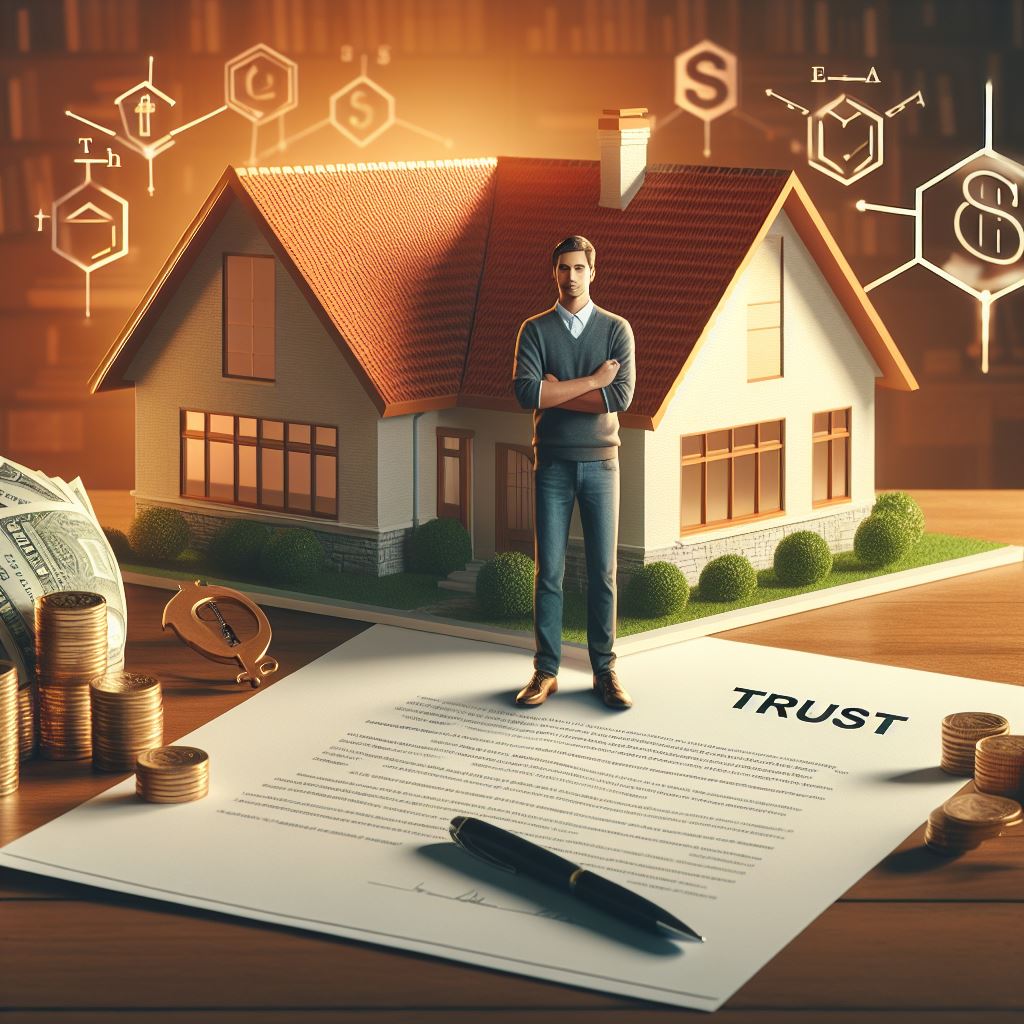Introduction
Harmonious relationships within homeowner associations (HOAs) are not merely desirable but essential for fostering a sense of community and ensuring a pleasant living environment for all residents.
When residents in an HOA are on good terms, they can collaborate effectively, share responsibilities, and collectively work towards maintaining property values and enhancing the quality of life within the community.
Unfortunately, conflicts within HOAs are not uncommon and can stem from various sources.
One of the most prevalent causes of discord is differences in interpretation or enforcement of HOA rules and regulations.
Disputes may also arise due to disagreements over property maintenance, allocation of resources, or changes to community policies.
Additionally, conflicting personalities or communication breakdowns among HOA members can escalate tensions and lead to further misunderstandings.
The purpose of this blog post is to offer practical guidance on how to navigate and resolve conflicts within HOAs effectively.
By providing actionable tips and strategies, this resource aims to empower HOA members, board directors, and property managers to address issues constructively and maintain a positive community atmosphere.
Whether you’re dealing with minor disagreements or more significant disputes, the insights shared in this post can help facilitate peaceful resolutions, promote mutual understanding, and ultimately contribute to the overall well-being of the HOA community.
Understanding the Root Causes of HOA Conflict
Resolving conflicts within a homeowner’s association (HOA) can be challenging, but understanding the root causes of the conflict is crucial to finding practical solutions.
HOA conflicts often arise due to a lack of communication and miscommunication among community members.
Lack of communication and miscommunication
Effective communication is essential in any organization, including HOAs.
However, ineffective communication channels can hinder the flow of information and lead to misunderstandings.
It is important for HOAs to have clear and accessible communication channels, such as newsletters, community forums, and online platforms, to ensure that all members can easily stay informed and share their concerns.
In addition to communication channels, differences in communication styles can contribute to conflict within an HOA.
Not everyone communicates in the same way, and misinterpretations can occur if members do not understand each other’s preferred communication methods.
Encouraging open dialogue and promoting active listening can help bridge these communication style gaps and reduce conflicts caused by miscommunication.
Furthermore, failure to convey expectations clearly can also result in conflicts.
When HOA rules and regulations are not effectively communicated, or when members have different interpretations of these rules, it can lead to misunderstandings and disputes.
HOAs should strive to provide clear guidelines and ensure that all members understand their rights and responsibilities within the community.
Divergent personal interests and conflicting priorities
Aside from communication issues, conflicts in HOAs can arise from divergent personal interests and conflicting priorities among community members.
Varying financial situations can lead to disagreements, especially when it comes to budgeting and maintenance decisions.
HOAs should consider implementing transparent financial reporting and involving members in decision-making processes to address financial conflicts.
Conflicting aesthetic preferences can also be a source of conflict within an HOA.
Individuals may have different ideas about how the community should look, leading to disputes over landscaping, architectural changes, or exterior colors.
Creating a design review committee with diverse representation and establishing clear guidelines for aesthetic changes can help address conflicts related to differing preferences.
Moreover, differing views on property use and rules can cause tension within an HOA.
Some members may prioritize personal freedoms and want to make full use of their properties, while others may prioritize maintaining a certain standard and preventing activities that could disrupt the community.
Developing well-defined rules and regulations that strike a balance between individual freedoms and community harmony can help prevent conflicts based on differing views.
Understanding the root causes of HOA conflicts is the first step towards resolving them effectively.
By addressing issues related to communication, personal interests, and priorities, HOAs can create a more harmonious and cohesive community for all members.
Read: Condo Board Duties: An Overview
Tips for Proactive Conflict Resolution
Proactive conflict resolution is key to maintaining a harmonious homeowners association (HOA).
By implementing the following tips, HOA members can foster open communication, promote compromise, and strengthen governance, leading to a more peaceful and cohesive community.
Encouraging open and respectful communication
Regular homeowner meetings and newsletters are effective tools to keep members informed and engaged.
These platforms provide opportunities for members to express their concerns and opinions, fostering transparency and trust.
Additionally, using online platforms such as community forums or social media groups can promote inclusive discussions and encourage wider participation, especially for members who are unable to attend physical meetings.
Implementing a non-confrontational complaint process is crucial for resolving issues in a constructive manner.
It is essential to establish a process that allows homeowners to express their concerns without fear of retaliation.
This can be achieved through anonymous suggestion boxes, grievance committees, or designated ombudsmen who can mediate between parties involved.
Promoting compromise and negotiation
Mediation and facilitation services serve as valuable resources for resolving conflicts within the HOA.
Trained professionals can help members find common ground by facilitating communication and guiding negotiations.
Encouraging members to consider the bigger picture and long-term consequences of their actions can help them prioritize compromise and seek solutions that benefit the entire community.
In a diverse community, it is crucial to recognize and satisfy different needs.
HOA members should strive to find win-win solutions that accommodate various preferences and perspectives.
This can be achieved through compromise, creative problem-solving, and fostering an atmosphere of mutual respect and understanding.
Strengthening HOA governance and transparency
Clear and easily accessible rules and regulations are essential for effective HOA governance.
Members should be aware of their rights and obligations to ensure a fair and harmonious community.
By clearly defining expectations and consequences, potential conflicts can be avoided or easily addressed.
Transparency in decision-making processes is crucial to building trust among homeowners.
HOA boards should provide regular updates on ongoing projects, financial matters, and important policy changes.
Furthermore, actively engaging homeowners in decision-making through surveys, town hall meetings, and committees can help ensure that the interests and concerns of all members are taken into account.
In essence, proactive conflict resolution within an HOA is essential for fostering a harmonious community.
Encouraging open and respectful communication, promoting compromise and negotiation, and strengthening governance and transparency are key strategies that can help prevent and address conflicts effectively.
By implementing these tips, HOA members can improve relationships, build trust, and create a peaceful and thriving living environment for all.
Read: HOA Meetings: Your Participation Guide

Effective Problem-Solving Approaches
Resolving conflicts within a homeowners association (HOA) requires effective problem-solving approaches.
By encouraging active listening and empathy, as well as seeking professional assistance when necessary, conflicts can be resolved in a fair and efficient manner.
Encouraging active listening and empathy
In order to address conflicts within an HOA, it is crucial to create an environment where homeowners feel safe to express their concerns.
By providing a safe space for homeowners to openly and honestly voice their grievances, conflicts can be addressed more effectively.
Active listening plays a pivotal role in this process, as it helps understand the underlying emotions and perspectives.
Practicing empathy is equally important in resolving conflicts.
By putting oneself in someone else’s shoes, it becomes easier to understand their position and motivations.
Homeowners with differing opinions or interests should be treated with empathy to foster understanding and bridge the gap between conflicting parties.
Fostering a sense of community and understanding is also essential in conflict resolution within an HOA.
By encouraging open dialogue, mutual respect, and the recognition of shared goals, homeowners can develop a better understanding of each other’s concerns and work towards common solutions.
Seeking professional assistance when necessary
Although encouraging open communication and empathy can resolve many conflicts, there are instances where professional assistance becomes necessary.
Homeowners associations may consider utilizing HOA attorneys who specialize in HOA laws and regulations.
These attorneys can provide legal advice and guidance, helping HOAs navigate complex conflict situations and ensuring compliance with relevant laws.
Another option is engaging a professional mediator when conflicts persist or escalate.
A mediator acts as an unbiased third party, facilitating productive discussions and helping conflicting parties find mutually agreeable solutions.
Mediators bring expertise in effective negotiation and conflict resolution, allowing for a fair and impartial process.
Additionally, involving experts in conflict resolution training and workshops can equip HOA board members and homeowners with valuable skills and strategies.
These experts can offer insights on effective communication techniques, problem-solving frameworks, and conflict de-escalation methods.
By investing in conflict resolution training, HOAs can better handle conflicts internally, minimizing the need for external intervention.
In fact, resolving conflicts within an HOA requires proactive problem-solving approaches.
By encouraging active listening, empathy, and a sense of community, conflicts can be addressed at their root causes.
When necessary, seeking professional assistance through HOA attorneys, professional mediators, and conflict resolution experts can provide the necessary guidance and expertise for fair and efficient resolution.
Ultimately, a cooperative and solution-oriented approach is key to promoting harmony and fostering a thriving community within the HOA.
Read: Navigating HOA Disputes: Effective Strategies
Maintaining Long-Term Harmony within HOAs
In order to maintain long-term harmony within homeowners associations (HOAs), proactive measures must be taken to ensure ongoing communication and collaboration among community members.
This section explores practical tips for promoting unity and preventing conflicts within HOAs.
Promoting ongoing communication and collaboration
A crucial aspect of fostering harmony within HOAs is to establish and nurture relationships among community members.
One way to achieve this is by organizing social events that provide opportunities for homeowners to interact and get to know each other.
These events can range from neighborhood barbecues to holiday parties and can help build a sense of community and camaraderie.
Furthermore, establishing committees for specific areas of interest allows homeowners to contribute their skills and expertise to the community.
These committees can focus on aspects such as landscaping, recreational activities, or community outreach.
By encouraging participation in these committees, homeowners feel more invested in the community and are more likely to cooperate and collaborate with their neighbors.
Addressing conflicts promptly and impartially
Another crucial aspect of maintaining long-term harmony within HOAs is addressing conflicts promptly and impartially.
Establishing a conflict resolution committee ensures that disputes are handled professionally and fairly.
This committee can be composed of volunteers from the community who have undergone conflict resolution training or have relevant experience.
Recording conflicts and their resolutions is vital for maintaining accountability and preventing recurring disputes.
Documenting conflict details and resolutions facilitates future reference and identifies recurring issues efficiently.
Regularly reviewing and updating HOA guidelines
In addition to documenting conflicts, it is also crucial to hold regular check-ins to assess the effectiveness of conflict resolution measures.
These check-ins can enable the HOA board to evaluate the success of the committee’s actions and make any necessary adjustments or improvements.
To prevent conflicts in the first place, it is essential to regularly review and update HOA guidelines.
Assessing rules and regulations for relevance and clarity ensures that they remain appropriate and functional for the community.
Homeowners’ input should be actively sought and considered during the revision process to promote a sense of ownership and inclusivity.
Transparency plays a significant role in building trust within HOAs.
Maintain open communication, inform homeowners promptly about any changes or proposed updates.
This fosters a collaborative environment where community members feel involved and respected.
In general, maintaining long-term harmony within HOAs requires proactive measures such as promoting ongoing communication and collaboration, addressing conflicts promptly and impartially, and regularly reviewing and updating HOA guidelines.
By implementing these practical tips, HOAs can create a sense of unity, resolve conflicts effectively, and ensure a harmonious community for all homeowners.
Read: Condo Law 101: Essential Legal Basics
Conclusion
A recap of the main points discussed
- Proactive communication is key in resolving conflicts within a homeowners association (HOA).
- Understanding the viewpoints of all parties involved can lead to better conflict resolution.
- Mediation can be an effective tool for resolving HOA conflicts.
- Enforcement of HOA rules and regulations should be fair and consistent.
Emphasizing the importance of proactive conflict resolution
By addressing conflicts early on and actively seeking resolution, HOA members can prevent tensions from escalating and avoid prolonged disputes that harm the community.
Encouraging homeowners to take an active role in fostering harmony within their HOA:
Homeowners should participate in HOA meetings, voice their concerns constructively, and work towards compromises that benefit the community.
Resolving conflicts within an HOA requires proactive communication, a willingness to understand different perspectives, and a commitment to fair enforcement of rules.
By taking an active role and engaging in conflict resolution strategies, homeowners can foster a harmonious and thriving community within their HOA.




